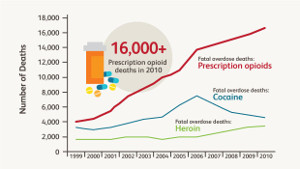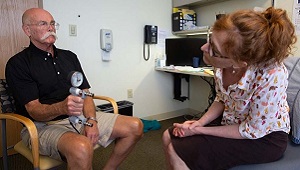Yu-Ru Su, PhD
Biography
Yu-Ru Su, PhD, specializes in statistical genetics, survival analysis, and functional/longitudinal data analysis. Her research interests cover a wide spectrum of statistical methods for modern biomedical studies, especially in cancer prevention and precision medicine. Her current research focuses on integrating information in genetics, environmental, and clinical data to develop precise risk models of cancers with a goal of promoting personalized prevention/surveillance strategies.
Before joining Kaiser Permanente Washington Health Research Institute, Dr. Su received her postdoctoral research training at Fred Hutchinson Cancer Research Center, where she was promoted to a staff scientist position. During her time at Fred Hutch, she was part of the Genetics and Epidemiology of Colorectal Cancer Consortium (GECCO), one of the world’s leading collaborations in colorectal cancer research. At GECCO, she conducted complex analyses aiming to discover genetic risk factors and interactions between genetics and environmental factors for colorectal cancer. These findings are essential for developing risk prediction models. She also developed novel and computationally feasible statistical methods via the kernel machine framework for detecting novel genetic associations with complex diseases by bringing in functional information from multi-omics data. Another field of her methods research focuses on statistical approaches for functional association between functional exposures and a scalar outcome. Dr. Su developed a new dimension reduction technique and a testing approach for inferences on the infinite-dimensional association. The application of these methods in modern genetic and aging studies is leading to a better understanding of underlying mechanism of complex diseases, including cancer and dementia.
Dr. Su received her PhD in biostatistics from the University of California, Davis. Her dissertation focused on statistical estimating procedures used to infer associations of survival outcomes and complex exposures. An example is time-varying covariates, based on incomplete data such as intermittently measured longitudinal covariates and left-truncation or doubly-censored survival outcomes. She investigated asymptotic properties of the proposed methods via modern semiparametric theory and proposed complex algorithms for handling incompleteness in data.
At Kaiser Permanente Washington Health Research Institute, Dr. Su collaborates with scientists from multiple disciplines to pursue answers and solutions to scientific questions related to breast cancer, Alzheimer’s disease and dementia, and opioid use disorders. She actively collaborates with the Breast Cancer Surveillance Consortium to investigate the screening performance of multiple screening modalitiesin women with and without breast cancer history, to build reliable risk prediction models and personalized strategies for screening and surveillance strategies. She also closely works with the Adult Change in Thought (ACT) study to understand the connection between dementia and other clinical and health conditions.
RESEARCH INTERESTS AND EXPERIENCE
Recent Publications
Tian Y, Lin Y, Qu C, Arndt V, Baurley JW, Berndt SI, Bien SA, Bishop DT, Brenner H, Buchanan DD, Budiarto A, Campbell PT, Carreras-Torres R, Casey G, Chan AT, Chen R, Chen X, Conti DV, Díez-Obrero V, Dimou N, Drew DA, Figueiredo JC, Gallinger S, Giles GG, Gruber SB, Gunter MJ, Harlid S, Harrison TA, Hidaka A, Hoffmeister M, Huyghe JR, Jenkins MA, Jordahl KM, Joshi AD, Keku TO, Kawaguchi E, Kim AE, Kundaje A, Larsson SC, Marchand LL, Lewinger JP, Li L, Moreno V, Morrison J, Murphy N, Nan H, Nassir R, Newcomb PA, Obón-Santacana M, Ogino S, Ose J, Pardamean B, Pellatt AJ, Peoples AR, Platz EA, Potter JD, Prentice RL, Rennert G, Ruiz-Narvaez EA, Sakoda LC, Schoen RE, Shcherbina A, Stern MC, Su YR, Thibodeau SN, Thomas DC, Tsilidis KK, van Duijnhoven FJB, Van Guelpen B, Visvanathan K, White E, Wolk A, Woods MO, Wu AH, Peters U, Gauderman WJ, Hsu L, Chang-Claude J Genetic risk impacts the association of menopausal hormone therapy with colorectal cancer risk 2024 Jun;130(10):1687-1696. doi: 10.1038/s41416-024-02638-2. Epub 2024-04-01. PubMed
Drew DA, Kim AE, Lin Y, Qu C, Morrison J, Lewinger JP, Kawaguchi E, Wang J, Fu Y, Zemlianskaia N, Díez-Obrero V, Bien SA, Dimou N, Albanes D, Baurley JW, Wu AH, Buchanan DD, Potter JD, Prentice RL, Harlid S, Arndt V, Barry EL, Berndt SI, Bouras E, Brenner H, Budiarto A, Burnett-Hartman A, Campbell PT, Carreras-Torres R, Casey G, Chang-Claude J, Conti DV, Devall MAM, Figueiredo JC, Gruber SB, Gsur A, Gunter MJ, Harrison TA, Hidaka A, Hoffmeister M, Huyghe JR, Jenkins MA, Jordahl KM, Kundaje A, Le Marchand L, Li L, Lynch BM, Murphy N, Nassir R, Newcomb PA, Newton CC, Obón-Santacana M, Ogino S, Ose J, Pai RK, Palmer JR, Papadimitriou N, Pardamean B, Pellatt AJ, Peoples AR, Platz EA, Rennert G, Ruiz-Narvaez E, Sakoda LC, Scacheri PC, Schmit SL, Schoen RE, Stern MC, Su YR, Thomas DC, Tian Y, Tsilidis KK, Ulrich CM, Um CY, van Duijnhoven FJB, Van Guelpen B, White E, Hsu L, Moreno V, Peters U, Chan AT, Gauderman WJ Two genome-wide interaction loci modify the association of nonsteroidal anti-inflammatory drugs with colorectal cancer 2024 May 31;10(22):eadk3121. doi: 10.1126/sciadv.adk3121. Epub 2024-05-29. PubMed
Luce C, Palazzo L, Anderson ML, Carter-Bawa L, Gao H, Green BB, Ralston JD, Rogers K, Su YR, Tuzzio L, Triplette M, Wernli KJ A pragmatic randomized clinical trial of multilevel interventions to improve adherence to lung cancer screening (The Larch Study): Study protocol 2024 May;140:107495. doi: 10.1016/j.cct.2024.107495. Epub 2024-03-11. PubMed
Chen Z, Guo X, Tao R, Huyghe JR, Law PJ, Fernandez-Rozadilla C, Ping J, Jia G, Long J, Li C, Shen Q, Xie Y, Timofeeva MN, Thomas M, Schmit SL, Díez-Obrero V, Devall M, Moratalla-Navarro F, Fernandez-Tajes J, Palles C, Sherwood K, Briggs SEW, Svinti V, Donnelly K, Farrington SM, Blackmur J, Vaughan-Shaw PG, Shu XO, Lu Y, Broderick P, Studd J, Harrison TA, Conti DV, Schumacher FR, Melas M, Rennert G, Obón-Santacana M, Martín-Sánchez V, Oh JH, Kim J, Jee SH, Jung KJ, Kweon SS, Shin MH, Shin A, Ahn YO, Kim DH, Oze I, Wen W, Matsuo K, Matsuda K, Tanikawa C, Ren Z, Gao YT, Jia WH, Hopper JL, Jenkins MA, Win AK, Pai RK, Figueiredo JC, Haile RW, Gallinger S, Woods MO, Newcomb PA, Duggan D, Cheadle JP, Kaplan R, Kerr R, Kerr D, Kirac I, Böhm J, Mecklin JP, Jousilahti P, Knekt P, Aaltonen LA, Rissanen H, Pukkala E, Eriksson JG, Cajuso T, Hänninen U, Kondelin J, Palin K, Tanskanen T, Renkonen-Sinisalo L, Männistö S, Albanes D, Weinstein SJ, Ruiz-Narvaez E, Palmer JR, Buchanan DD, Platz EA, Visvanathan K, Ulrich CM, Siegel E, Brezina S, Gsur A, Campbell PT, Chang-Claude J, Hoffmeister M, Brenner H, Slattery ML, Potter JD, Tsilidis KK, Schulze MB, Gunter MJ, Murphy N, Castells A, Castellví-Bel S, Moreira L, Arndt V, Shcherbina A, Bishop DT, Giles GG, Southey MC, Idos GE, McDonnell KJ, Abu-Ful Z, Greenson JK, Shulman K, Lejbkowicz F, Offit K, Su YR, Steinfelder R, Keku TO, van Guelpen B, Hudson TJ, Hampel H, Pearlman R, Berndt SI, Hayes RB, Martinez ME, Thomas SS, Pharoah PDP, Larsson SC, Yen Y, Lenz HJ, White E, Li L, Doheny KF, Pugh E, Shelford T, Chan AT, Cruz-Correa M, Lindblom A, Hunter DJ, Joshi AD, Schafmayer C, Scacheri PC, Kundaje A, Schoen RE, Hampe J, Stadler ZK, Vodicka P, Vodickova L, Vymetalkova V, Edlund CK, Gauderman WJ, Shibata D, Toland A, Markowitz S, Kim A, Chanock SJ, van Duijnhoven F, Feskens EJM, Sakoda LC, Gago-Dominguez M, Wolk A, Pardini B, FitzGerald LM, Lee SC, Ogino S, Bien SA, Kooperberg C, Li CI, Lin Y, Prentice R, Qu C, Bézieau S, Yamaji T, Sawada N, Iwasaki M, Le Marchand L, Wu AH, Qu C, McNeil CE, Coetzee G, Hayward C, Deary IJ, Harris SE, Theodoratou E, Reid S, Walker M, Ooi LY, Lau KS, Zhao H, Hsu L, Cai Q, Dunlop MG, Gruber SB, Houlston RS, Moreno V, Casey G, Peters U, Tomlinson I, Zheng W Fine-mapping analysis including over 254,000 East Asian and European descendants identifies 136 putative colorectal cancer susceptibility genes 2024 Apr 26;15(1):3557. doi: 10.1038/s41467-024-47399-x. Epub 2024-04-26. PubMed
Liu M, Su YR, Liu Y, Hsu L, He Q Structured testing of genetic association with mixed clinical outcomes 2024 Apr 12 doi: 10.1002/gepi.22560. Epub 2024-04-12. PubMed
Breast Cancer Surveillance
Kaiser Permanente Washington Breast Cancer Surveillance Registry
Kaiser Permanente Washington has been part of the national Breast Cancer Surveillance Consortium since 1994. Learn about the Kaiser Permanente Washington Breast Cancer Surveillance Registry here.
Research

Helping first-time screeners know when to return
Well-timed outreach in print and video can boost awareness of repeat screening for lung cancer, study finds.
addictions

Long-term opioid risks are the focus of $10 million KPWHRI study
Dr. Denise Boudreau launches a collaborative project with Kaiser and other health systems on the safety of long-term prescription opioid use.
aging and geriatrics

The ACT Study: Looking toward the future
At 25 years, the Adult Changes in Thought Study is committed to science, collaboration, and jokes, writes Erin Bowles



